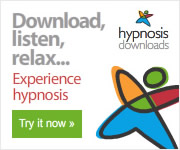Using Unconscious Learning to promote Health and Well being
By Jaime V. Pitner MICP, RHC
Your mind is much like a computer, what you experience shows up on the monitor of your consciousness, without a thought of where it came from. But, like your computer, much work happens behind the scenes, processes, programs, electrical pathways of information and direction, and the vast storage of memory.
You may think that you have one mind, but you actually have two, or perhaps better put, you have two parts of one mind: the conscious and the unconscious. The conscious mind, like the computer monitor, allows you to experience what’s going on, gives you choices, brings awareness, allows you to interact and differentiate.
When you use your computer, occasionally you get automatic messages that pop-up on the screen. Most of these messages are routine prompts from the computer to perform a routine action, and others come with immediate warning, and may bring a sense of confusion and frustration. These messages come from the computer program or processor, from behind the scenes, just like the thoughts and feelings which appear in your mind, seemingly out of nowhere.
Ever wonder where your thoughts come from? Some are directed by the conscious process of concentration, initiated by a focus of directed thought. But, most thoughts throughout the day seem to just pop into your mind. If you're like most people, you then feel the obligation to begin pondering on those thoughts, sometimes right out to the bitter end.
The conscious mind is your monitor for the world, it gives you information for your consideration and action. Before you take action you must choose, using your critical thinking, will power, and judgement… all, important facets of your conscious mind.
Your unconscious mind, however, is void of judgement. Like the computer processor, it performs its functions dutifully and without question. A computer will run a bad program, just as well as it does a good program. It does what it believes you want by the directions it is given.
Unwittingly, you give direction to your unconscious mind every day. Each time you repeat an action, each time you use a common word or phrase, and even the emotions you feel most often become direction for your unconscious mind. This direction we can also call learning. As a computer is programmed, so to is your unconscious mind through all of your life's experiences. The unconscious mind, running all body systems and automatic functions, takes in all of your experiences, all sensory input from sight, sound, touch, taste, smell, and so on. It also records events, images, thoughts, and feelings over your entire life span, and stores them in the form of memory. It has been estimated that the human memory can store billions of bits of information each second, and by the time you're eighty or ninety you still will have only used about two-thirds of its capacity. Your memory seems virtually limitless.
The problem is, you don't need all that information. It would be system overload if all of your life's experiences came flooding through. When you're on your computer looking for a file or searching the web for information, you don't want all the data your computer has stored, you just want the information you need at this moment.
Therefore, the unconscious mind must have a way to process information, and to prioritize and retrieve what it believes you need, when you need it. It must learn. In fact, one of the prime directives of the unconscious is to gain learning. As the unconscious has no judgement, it regards everything as learning.
Your learned behaviors can be good or bad for you. We all possess both good habits and bad habits, but you may not be aware that they are formed by the same process of unconscious learning.
Consciously you can determine, or choose what is desired and not desired. But your conscious mind isn't always given the choice before the unconscious has acted upon it. The unconscious mind provides a short cut to all of your inner resources; memory, recall, creativity, and body functions.
Everything you are good at, every talent, skill, and ability follows this same path of learning. This unconscious learning occurs in three primary ways: repetition, association, and emotion.
Repetition - the more you repeat a behavior, the more you are likely to repeat the behavior, as your unconscious mind develops an easy pathway for it. Your mind believes you want this frequently used behavior by the very fact that you keep on doing it. Actions sometimes speak louder than words. Look at the smoking habit, what more than smoking does a smoker do each day. A pack a day smoker repeats this behavior 20 times a day, every day. There's a lot of repetition there. That's why “practice makes perfect”. Even things you start out doing bad, in time become easier as you master the behavior, talent or skill.
Because your unconscious runs all your body systems, it can help you develop in the repeated behavior. Every smoker will tell you that in the beginning cigarette taste terrible. But, in time, with practice and diligence, repeating smoking over and over, an amazing thing happens. The cigarette that tasted terrible now becomes enjoyable. The unconscious mind, taking in all the information from your body and all the senses, makes it easier for you by adjusting the sensory information to make it more enjoyable. This is how you acquire tastes for things. The unconscious mind helps you do what it believes you want, without judgment, even if its bad for you.
This is a good example of the difference in conscious and unconscious processing. The conscious mind knows all of the dangers and problems of smoking, yet, the unconscious mind, connected to the body, drives the smoking habit.
Even if you don't smoke there are plenty of examples in your life of this process. Have you ever worked at a place for several years, driving your car the same route every day? Then, one morning you drive to work, park your car, and as you close the door think…”how did I get here?” While your conscious mind was wandering in dream, worry, or thought, your unconscious mind and your body were driving the car. They know the route well. Or, have you ever been anxious to get home, and suddenly look down to find that you are speeding. Your foot has unconsciously pressed down further on the pedal. Just the thought made your body react, without any guidance from your conscious mind.
Association – the unconscious mind works primarily by association. As one behavior is associate with another, there is a double bind. That's why even the aroma of coffee can bring about an urge to smoke a cigarette. Have you every noticed that when you turn on the TV you suddenly feel a bit hungry? When you are with friends telling jokes, does that trigger you to suddenly think of some funny things yourself? Since your unconscious mind and your body are in constant communication, your body reacts to these triggers.
Emotion - emotion is the most powerful form of communication from the unconscious mind. Isn't it true that your strongest and most vivid memories are those linked with strong emotion. Emotion drives the most fundamental programs for your survival, the “fight or flight” response. Think about what emotion is helpful for a fight – anger. Anger can mobilize powerful resources in your body to help you fight with power and fury. An emotion that is helpful to flee from a threat is – fear. Fear will put an extra skip in your step, allowing you sprint like an Olympic athlete. You can run pretty fast without fear, but with it your body springs into action automatically, you don't even have to think about it. Emotion helps the mind distinguish between events and information from your life's experiences, which it thinks is important for you and your survival. Those things without emotional value are lost to conscious recall.
The unconscious minds ultimate priority is to assure your survival. Keeping automatic functions like your heart beating and respiration going is a job it takes seriously. Since the unconscious lacks judgement, it interprets any negative emotion as communication to mobilize the body for action. That's why when you're anxious, stressed, worried, or depressed, you feel that unconscious muscle tension in your neck, shoulders, or back, your heart race, and that pit in your stomach.
These sensations are your body speaking to you. This communication is important for you to be aware of as your body can be used to communicate messages back as well. A tense muscle calls for more support and energy from the unconscious mind. The unconscious responds with the release of stress hormones, sympathetic nervous system response and quickened pulse. It all happens automatically, but, if a tense muscle calls for the stress response, then a relaxed muscle will reverse the request and call for relaxation.
Breathing is another powerful mind-body communication method. Breathing is important because it is an automatic system run by the unconscious mind, yet it can also be consciously controlled. Breathing provides a valuable and effective bridge of communication between conscious and unconscious mind. During stress you breathe shallow and rapidly, sometimes even holding your breath. But, when you're relaxed you breathe deep and slowly, like when you sleep. When you consciously change the rate of your breathing, a chemical change occurs in your body. Stress hormones begin to stem their flow, and the parasympathetic nervous system is engaged with all of its calming effects.
You communicate direction to your body and mind with the words you use.
What words do you use in that running commentary of your inner thoughts? Are those words supportive or punishing? Words are electric, you must choose them for the emotional voltage that they carry.
Remember that emotions are the most powerful driver of unconscious processing. Words stimulate emotion, and emotion is the source of all motivation. Begin to think of your thoughts as magnetic. Whatever you hold in your predominant conscious view, will simply attract more of the same. Worry and self-doubt will come as easily as confidence and focus. The unconscious mind will give you what it believes you're asking for by association. You get what you ask for, so choose only good things.
A nationally accomplished speaker and published author of EMS and Stress Management topics, Jamie Pitner also provides instruction on Wellness, and Workplace Violence & the Management of Assaultive Behavior, Tai Chi, and Self Defense. jpitner@virtua.org

